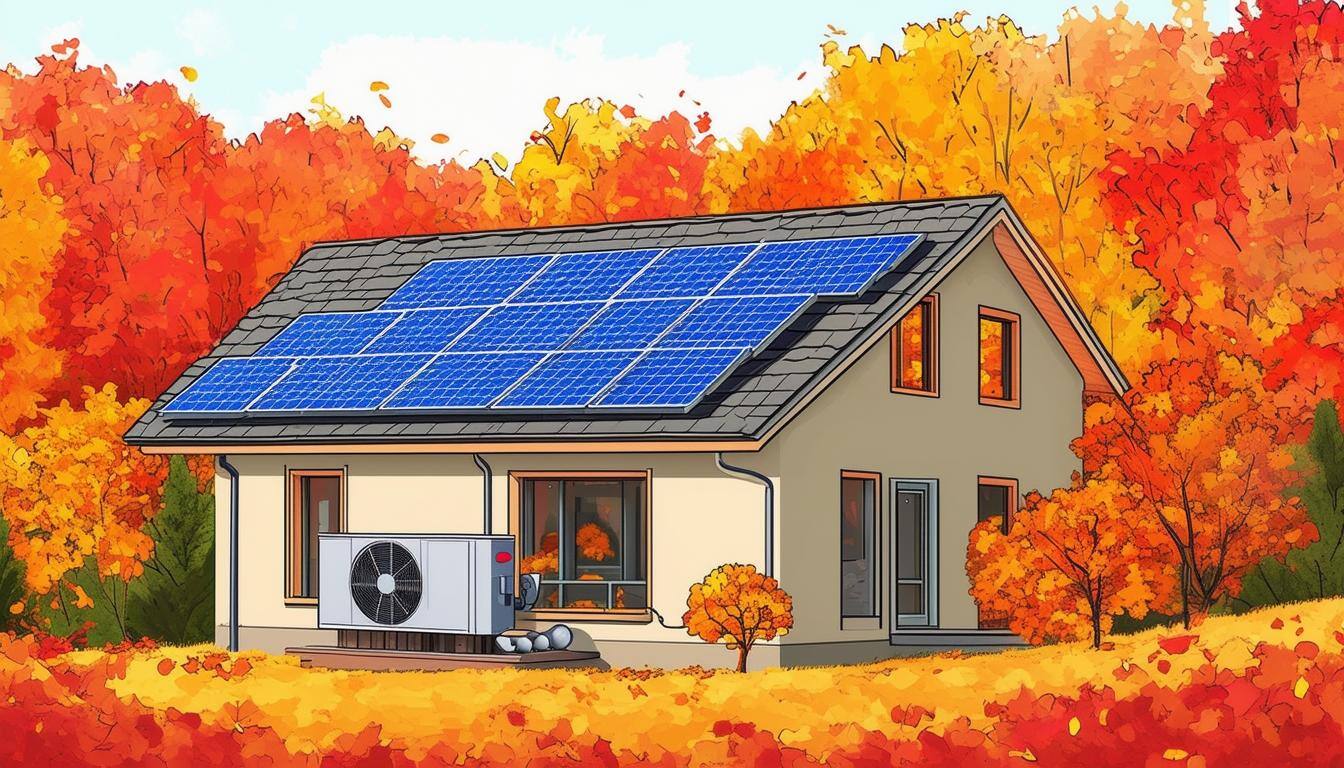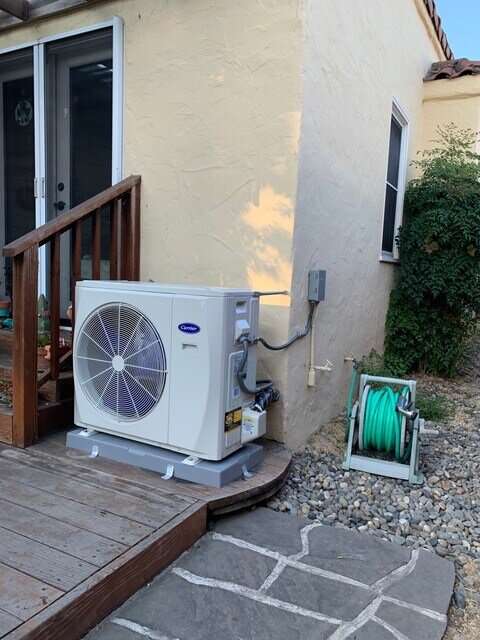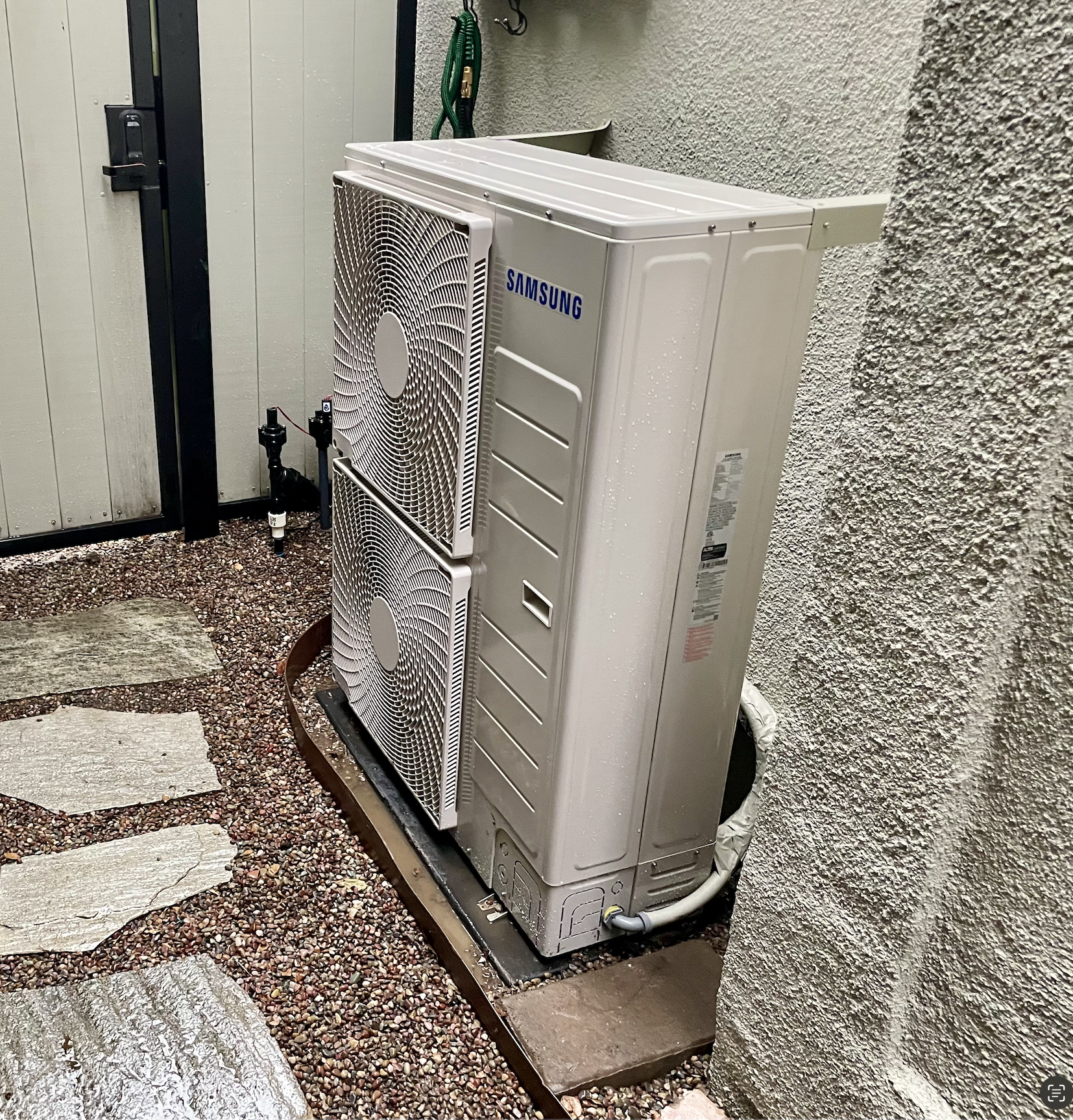When to Replace Your HVAC System
Heating and cooling systems lose efficiency as they age. It's important to replace your HVAC—a combination of devices that heat and cool your home—before inconvenient breakdowns or service visits occur. In addition to keeping you warm and cool, HVAC systems keep your air quality healthy and moderate excess moisture. If your equipment isn't working, it can cause major problems.
This guide lays out when to replace your home's HVAC systems.
- How Long Will My HVAC Last?
- When Should I Replace My HVAC?
- What's the Best Option to Replace My HVAC?
How Long Will My HVAC System Last?
HVAC systems typically last between 10-20 years. However, your HVAC system degrades based on a variety of factors.
- What HVAC system you are using
- Proper maintenance and care
- Adequate insulation for your home
- Temperature preferences
- Local climate and humidity
Depending on the situation, your HVAC system can last longer or break down more quickly. For example, if you have a well-insulated home that has a strong thermal boundary, your HVAC system will last longer. If you don't perform frequent maintenance, the HVAC will lose efficiency earlier.
By properly insulating your home, performing regular maintenance, and monitoring temperatures, you can extend the life of your HVAC system.
HVAC Systems by Life Expectancy
Eventually, your HVAC system will break down. Here's a list of each type of HVAC system and how long they last.
- Window AC unit — 10 years
- Residential single-home unit — 15 years
- Heat pumps — 15 years on average, longer if you have good insulation and regular maintenance
- Radiant heaters — 15-20 years
- Electric baseboard heaters - typically about 20 years, longer with good maintenance
- Furnace — 15-20 years, depending on maintenance
- Steam boilers — 15-35 years depending on the type of boiler
- Thermostats — about 10 years
When Should I Replace My HVAC?
There are many telltale signs that your HVAC system needs to be replaced. Here's a list of things to watch out for:
1. Frequent Repairs
If you regularly need to get your HVAC system repaired due to breakdowns, loud noises, or general disrepair, it might be time to think about a replacement. While regular maintenance is necessary, eventually the expense of constant repairs won't be worth it compared to a replacement. If your air conditioner is never working or your heater rarely generates heat, it's time to invest in a replacement.
2. High Energy Costs
A sudden spike in energy costs could be a sign your HVAC system is being badly overworked. While rising energy prices are going up slowly, you shouldn't see large spikes or rapid increases. While your HVAC system is supposed to last at least 10 years, you could have overworked it due to improper insulation or leaks.
3. You're Seeing More Dust
Your HVAC system also provides much-needed ventilation. A functional and efficient HVAC unit removes dust, debris, and dirt from the air. If you are noticing dust floating around, your HVAC is not working efficiently and may need to be replaced. Increased allergy symptoms can be another sign your HVAC isn't working as intended. If your air quality is bad or your AC unit or furnace is giving off foul odors, you should replace it with a heat pump.
4. HVAC System Uses R-22 "Freon" Refrigerants
This one's easy: if your HVAC system uses R-22 refrigerant, also known as R-22 freon, you should consider a replacement. R-22 freon is being phased out in the United States due to its harmful effects on the environment. If your AC unit is more than 10 years old, it may still use R22 freon.
R-22 freon is no longer being produced, so if your AC unit needs more R-22 coolant, it's time to get a replacement. Finding R-22 is increasingly difficult as existing supplies dwindle. Save yourself a headache and replace your AC unit. To learn if your AC unit uses R-22, check the information on the condenser unit or contact a professional.
5. Aging HVAC Systems
Once you get past 10 years, your HVAC system will start to show signs of age. HVAC technology has likely advanced since you last installed heating and cooling appliances, so it's worth letting old units go. Your home's energy efficiency is likely doing poorly if your HVAC is more than 10 years old. If you're nearing 20 years, it's time for a replacement. At a certain point in your unit's lifecycle, you are likely losing more money on energy bills than it would cost to replace it.
6. You're Feeling Uncomfortable
Your HVAC system should make you feel comfortable in your own home. Unfortunately, aging HVAC systems can leave you feeling too hot even when the AC is running. Rooms can be drafty or have uneven temperatures. The humidity levels in your house may be out of control due to poor efficiency. If you don't feel comfortable, it's time to replace your HVAC system with something that will improve your quality of life.
7. Your HVAC Uses Fossil Fuels
If your HVAC system uses natural gas or heating oil, it's probably time to replace it. Modern HVAC technology has moved toward electrified appliances as they are cheaper, more efficient, and better for the environment within your home and your community. Heating oil and natural gas are costly and depend on unpredictable market swings and geopolitical factors. It's no fun to have your energy bills shoot up due to a snap OPEC decision you have no control over.
In addition, fossil fuel-based HVAC systems can heighten your risk of exposure to toxic substances or disastrous accidents. Air-source heat pumps are a far more efficient way to heat your home.
What's the Best Option to Replace My HVAC?
If any of these signs apply to your current HVAC system, it's worth considering an upgrade. By switching to a more energy-efficient system, such as an electric air-source heat pump, you'll enjoy improved comfort, healthier indoor air quality, and potentially lower energy bills. With regular maintenance and good insulation, air-source heat pumps can also last longer than fossil fuel HVAC systems.
When you're ready to make the change, be sure to contact QuitCarbon before consulting with a reputable HVAC professional to ensure you get the right system for your home's specific needs. Remember, it's always a good idea to get multiple quotes and compare options before making a final decision. Our free "Electrification Plan" can help you through the process.
With a new, efficient HVAC system, you can rest assured that your home will remain comfortable throughout the seasons while reducing your carbon footprint and contributing to a greener future.
QuitCarbon has helped hundreds of homeowners upgrade to electric appliances like heat pumps. Contact us to receive a personalized "Electrification Plan" that will guide you through the process and connect you with our network of local contractors to make sure the work is done right. Installing a new HVAC system may seem complicated, but QuitCarbon makes the process easy.



